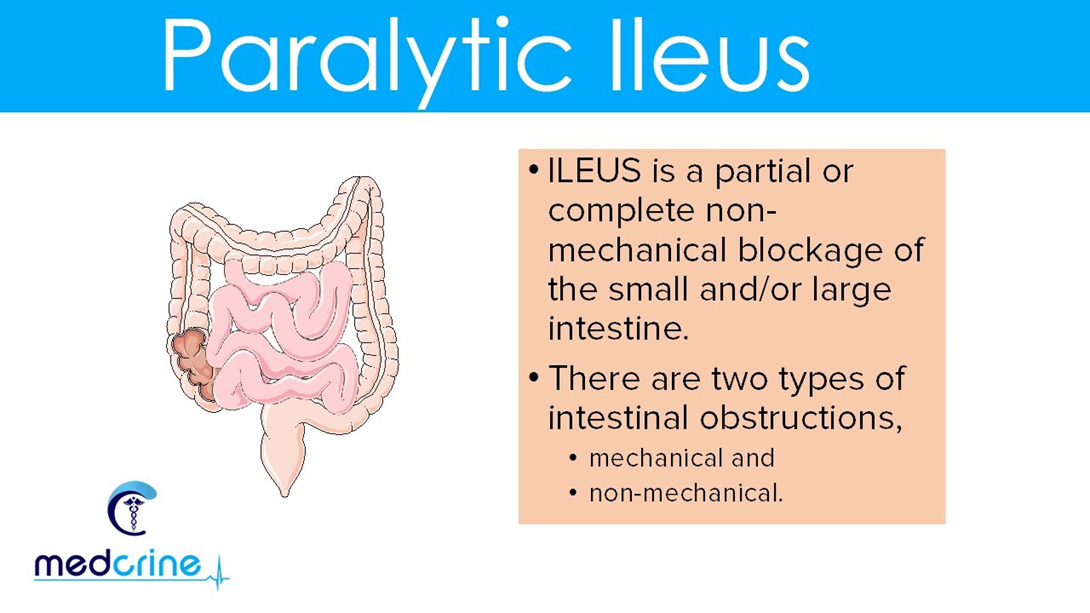The nurse is caring for a client on the third day following abdominal surgery and assesses the absence of bowel sounds, abdominal distention, and the client passing no flatus. These findings indicate the client is experiencing which of the following postoperative complications?
Fecal impaction
Incisional infection
Health care-associated Clostridium difficile
Paralytic ileus
The Correct Answer is D
Choice A reason: Fecal impaction typically presents with the inability to pass stool and may not be associated with the absence of bowel sounds.
Choice B reason: Incisional infection is usually indicated by localized redness, warmth, and possible discharge, not necessarily by the absence of bowel sounds or flatus.
Choice C reason: Health care-associated Clostridium difficile often presents with diarrhea, not the absence of bowel sounds or flatus.
Choice D reason: Paralytic ileus is characterized by impaired intestinal motility and transit, absence of the passage of flatus, diminished bowel sounds, abdominal distension, and intestinal dilatation, fitting the symptoms described.

Nursing Test Bank
Naxlex Comprehensive Predictor Exams
Related Questions
Correct Answer is D
Explanation
Choice A reason: Signal anxiety refers to a specific concern or perceived threat, which is not indicated by the patient's statement.
Choice B reason: Severe anxiety is a high level of anxiety that would likely impair functioning, which cannot be determined from the patient's statement alone.
Choice C reason: Moderate anxiety is a manageable level of anxiety, but the patient's statement suggests a more pervasive and non-specific anxiety.
Choice D reason: Free-floating anxiety is a general feeling of dread or foreboding that is not attached to any specific issue or situation, which aligns with the patient's expression of a vague sense of impending doom.
Correct Answer is A
Explanation
Choice A reason: This response is empathetic and reassuring, affirming the nurse's role in providing care and support, which is essential in managing patients with schizophrenia who may experience feelings of paranoia or imprisonment.
Choice B reason: Asking if the patient feels they don't belong could reinforce feelings of alienation or paranoia. It's important to provide reassurance rather than question their sense of belonging.
Choice C reason: While deep breathing can be a calming technique, assuring the patient they will feel better may not address their immediate concerns or the reality of their feelings.
Choice D reason: Asking why they feel the need to leave could challenge the patient's experience and potentially escalate their distress. It's important to validate their feelings and provide reassurance.
Whether you are a student looking to ace your exams or a practicing nurse seeking to enhance your expertise , our nursing education contents will empower you with the confidence and competence to make a difference in the lives of patients and become a respected leader in the healthcare field.
Visit Naxlex, invest in your future and unlock endless possibilities with our unparalleled nursing education contents today
Report Wrong Answer on the Current Question
Do you disagree with the answer? If yes, what is your expected answer? Explain.
Kindly be descriptive with the issue you are facing.
